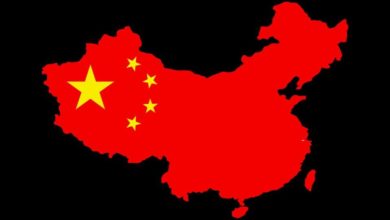الديمقراطية الإجرائية والفعل الاحتجاجي في المغرب
Procedural Democracy and Protest Action in Morocco

اعداد : أوبلوش محمد
- المركز الديمقراطي العربي
- مجلة اتجاهات سياسية : العدد الخامس أغسطس – آب “2018”دورية علمية محكمة تصدر عن المركز الديمقراطي العربي “ألمانيا –برلين” تعنى بنشر الأوراق البحثية والتقارير والتحليلات السياسية والقانونية والإعلامية حول الشؤون الدولية والإقليمية ذات الصلة بالواقع العربي بصفة خاصة والدولي بصفة عامة.
ملخص:
تناقش الدراسة “نموذجًا نظريًا” إشكاليًا يُعَرف ب “الديمقراطية الإجرائية وفعل الاحتجاج”، وتبدأ من البدايات الأولى لنشأة المفهوم، مع الإغريق، مرورًا بنضوج معالمه التفسيرية في سياق تعريف المفهوم من زواياه الأربعة الإجرائي والدستوري وذو التوجه العملياتي والجوهري. تقدم الدراسة نقدًا تحليليا للمفهوم واستعمالاته، فتحاجج بأن علاقة “الديمقراطية بفعل الاحتجاج” بدأت بوصفها سياسات إجرائية أملتها الضرورة قبل أن تصبح مقاومة للسلطوية وللسياسات العامة اللاشعبية. وتجادل بأنه يكون نظام الحكم ديمقراطيا بقدر ما توفر علاقات المواطن- الدولة من مشاورات واسعة ومتساوية ومحمية وذات التزام متبادل. وبناءً على ذلك، تنطوي الديمقراطية على وجود تحرك النظام نحو ذلك النوع من المشاورات، بينما تنطوي إطاحة الديمقراطية على تحرك النظام بعيدا عنها. لا تهدف الدراسة إلى مناقشة الديمقراطية بشكل عام، ولا المقابلة بين مختلف أشكالها، وإنما تسعى إلى النظر في النظام السياسي المغربي بما هو نظام حكم يدعي الاختيار الديمقراطي دستوريا. علاوة على ذلك توضح الدراسة أن العلاقة بين المظاهرات والاحتجاجات- في الريف كنموذج المغرب- بالديمقراطية ومدى تأثيرها على السياسة العامة، هي علاقة جدلية يمكن تتبعها من خلال مستويين تقع بين الاستجابة وعدم الاستجابة. يتمثل المستوى الأول في الاستجابة الكاملة لمطالب المحتجين، وهذه حالة مثالية يندر تحققها في دول العالم الثالث، باستثناء النظم السياسية الديمقراطية. ويتمثل المستوى الثاني في الاستجابة الانتقائية، حيث تتم الاستجابة لمطالب دون أخرى، إما لتبرير سياسة معينة سيتم اتخاذها، أو لاحتواء المظاهرات وعدم اتساع نطاقها، أو لإحداث انقسام داخل المتظاهرين أنفسهم. لكن هذا لا يعني أن غياب الاحتجاجات بالفضاء العمومي للدولة، بالضرورة، يؤدي إلى تحقيق الديمقراطية. في ضوء ذلك، تصوغ الدراسة ملاحظات نظرية عدة من شأنها أن تساعد في التمييز على نحو كافٍ بين مرحلة إقامة الديمقراطية ومؤشرات الإطاحة بها. وأخيرًا، تقف الدراسة عند احتجاجات المواطنين كمطالب مشروعة في مجال السياسة وعلاقتها بالتعاقد القائم بين الدولة والمواطنين المؤسس على مبدأ المساءلة والمشاركة السياسية.
Abstract:
The study discusses a problematic theoretical model known as procedural democracy and the act of protest. It starts with the beginning of the concept, with the Greeks, through the development of its explanatory features in the context of defining the concept from its four procedural, constitutional, operational and substantive aspects. The study presents an analytical critique of the concept and its uses, arguing that the relationship of “democracy by protest” began as procedural policies dictated by necessity before becoming resistant to authoritarianism and unpopular public policies. And argues that the system of a government is democratic if its citizen-state relations of consultations are broad, equal, protected and mutually committed. Accordingly, democracy implies the existence of the regime’s movement towards that kind of consultation, while the overthrow of democracy takes place when the regime’s movement is heading away from it. The study is not intended to discuss democracy in general, nor to differentiate between its various forms. Rather, it seeks to consider the Moroccan political system as a system of government that claims constitutional democratic by choice. In addition, the study shows that the relationship between demonstrations and protests – in the “reef” region as the model of Morocco – with democracy and its impact on public policy is a dialectical relationship that can be traced through two levels between response and non-response. The first level is the full response to the demands of the protesters, an ideal situation rarely seen in Third World countries, except for democratic political systems. The second level is the selective response, where demands are answered without the other, either to justify a specific policy to be taken, to contain the demonstrations and not to widen their scope, or to divide the demonstrators themselves. But this does not mean that the absence of protests in the public sphere necessarily leads to democracy. In this regard, the study draws up several theoretical observations that would help to distinguish adequately between the stage of democratization and the indicators of its overthrow. Finally, the study stands at the protests of citizens as legitimate demands in the field of politics and its relationship to the existing contract between the state and its citizens based on the principle of accountability and political participation.




